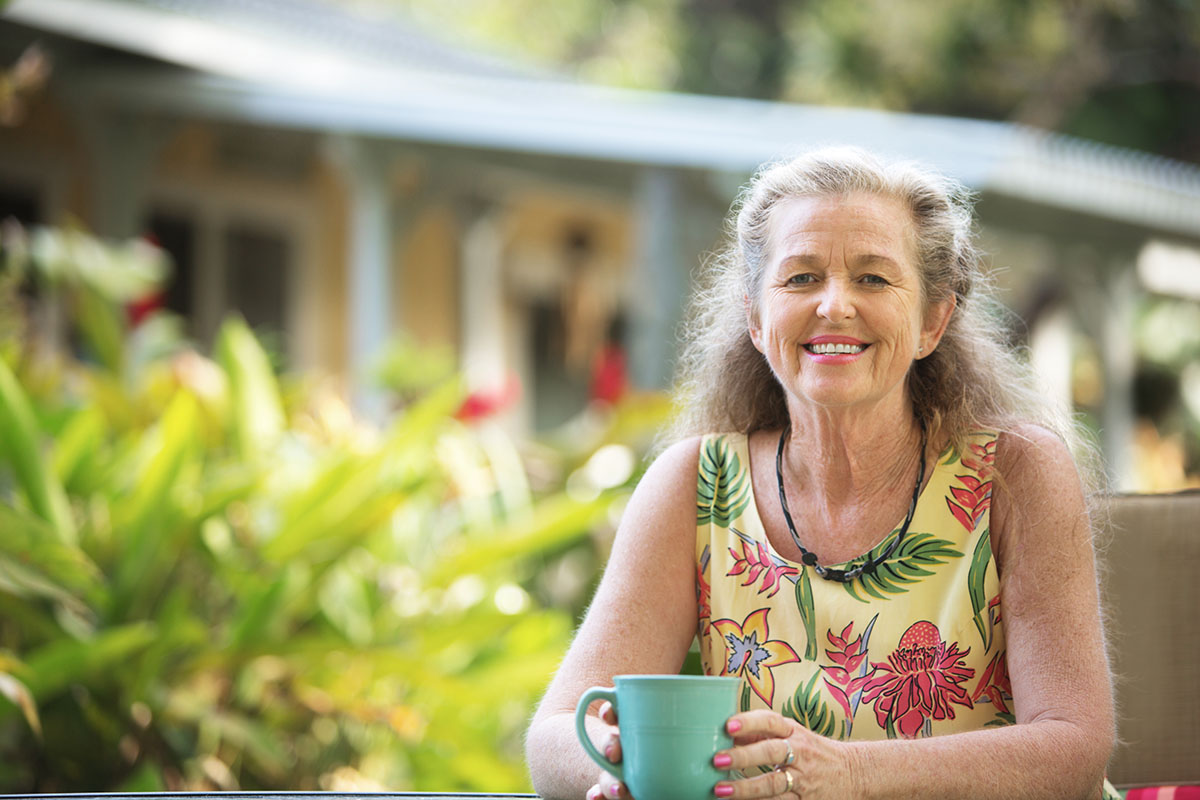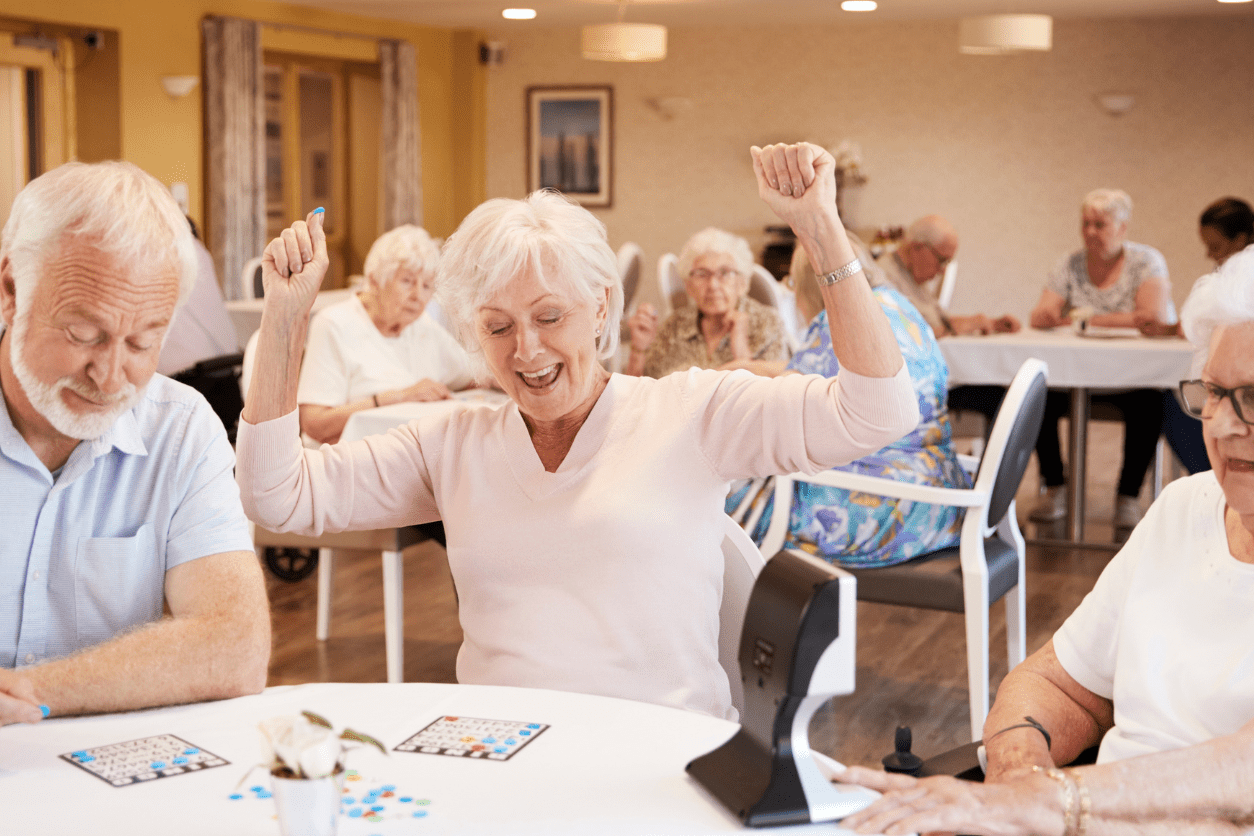Ageing well with brain injury

Ageing looks different for everyone, but for those living with brain injury, it can take extra courage, creativity and connection. Everyday life may bring new challenges: changes in memory or balance, moments of frustration, or difficulty finding the right services. Yet, it can also bring wisdom, resilience and community. With the right support, ageing can be a time to reconnect, rediscover purpose, and build meaningful relationships.
The Importance of connection and participation
Connection is one of the most powerful tools for wellbeing. It reminds us that we’re not alone, that others understand, and that our stories matter. Research shows that social isolation and loneliness can seriously affect physical and mental health, increasing the risk of depression, cognitive decline and even hospitalisation.
Staying connected, whether through local activities, peer support groups or community networks, helps people maintain a sense of purpose, independence and joy. When people have opportunities to share experiences, access support and rebuild confidence, they’re more likely to live independently and maintain their quality of life.
Ways to stay connected and engaged
Connection looks different for everyone. It might mean being part of a group, learning something new or finding ways to contribute to your community. Here are some ideas to help you stay active and connected while ageing with brain injury:
Community and social activities
- Join a Men’s Shed or community garden to build friendships and share skills.
- Take part in local art, music or craft programs through your council or community centre.
- Attend U3A (University of the Third Age) courses to keep your mind active and meet new people.
- Volunteer with a local charity to give back and stay engaged.
Health and wellbeing programs
- Join gentle exercise classes like aqua aerobics, walking groups or Pilates.
- Explore support groups for people living with brain injury or for carers.
- Join a pickleball team in your local area.
Keeping the mind active
Staying mentally active is just as important as keeping physically well. Brain-teasers, word games, puzzles and memory activities can all help strengthen cognitive skills and keep the mind sharp. Reading, playing cards, learning an instrument or even trying out a new recipe are all simple ways to stimulate the brain and boost mood.
Research shows that keeping the brain engaged through learning and creativity can improve focus, confidence and overall wellbeing. These small daily moments of curiosity and challenge can help people maintain independence and a sense of accomplishment at any age. See how article “How puzzles and games support brain health in seniors with brain injuries” for more information.

What the research shows
- Loneliness and social isolation are linked to poorer health outcomes in older adults, including cognitive decline and increased hospitalisation (Australian Institute of Health and Welfare, 2023).
- Social participation improves mental health and quality of life for people ageing with disabilities, including acquired brain injury (International Journal of Environmental Research and Public Health, 2022).
- Physical activity and connection support better recovery and adaptation after brain injury (Frontiers in Rehabilitation Sciences, 2023).
- Cognitive stimulation and learning help maintain brain health and independence in later life (Dementia Australia – Brain Health Hub).
Ageing well with the right support
Ageing well isn’t just about living longer, it’s about living meaningfully, surrounded by understanding and connection. It might mean joining a local group, picking up an old hobby, or finding new ways to contribute to your community. Accessing specialist brain injury information, rehabilitation programs and carer support can help older adults maintain confidence, independence and joy.
If you or someone you know is ageing with a brain injury, contact Synapse on 1800 673 074 for information and support. Together, we can help make ageing well a reality.
Sources:
Australian Institute of Health and Welfare (2024). Social isolation, loneliness and wellbeing. Retrieved from https://www.aihw.gov.au/mental-health/topic-areas/health-wellbeing/social-isolation-and-loneliness
Dementia Australia. Brain Health Hub. Retrieved from https://www.dementia.org.au/brain-health
Frontiers in Rehabilitation Sciences (2023). Physical activity and connection in recovery and adaptation after brain injury. Retrieved from https://www.frontiersin.org/journals/rehabilitation-sciences
International Journal of Environmental Research and Public Health (2022). Social participation, mental health and quality of life in people ageing with disabilities. Retrieved from https://www.mdpi.com/1660-4601/19/12/7099